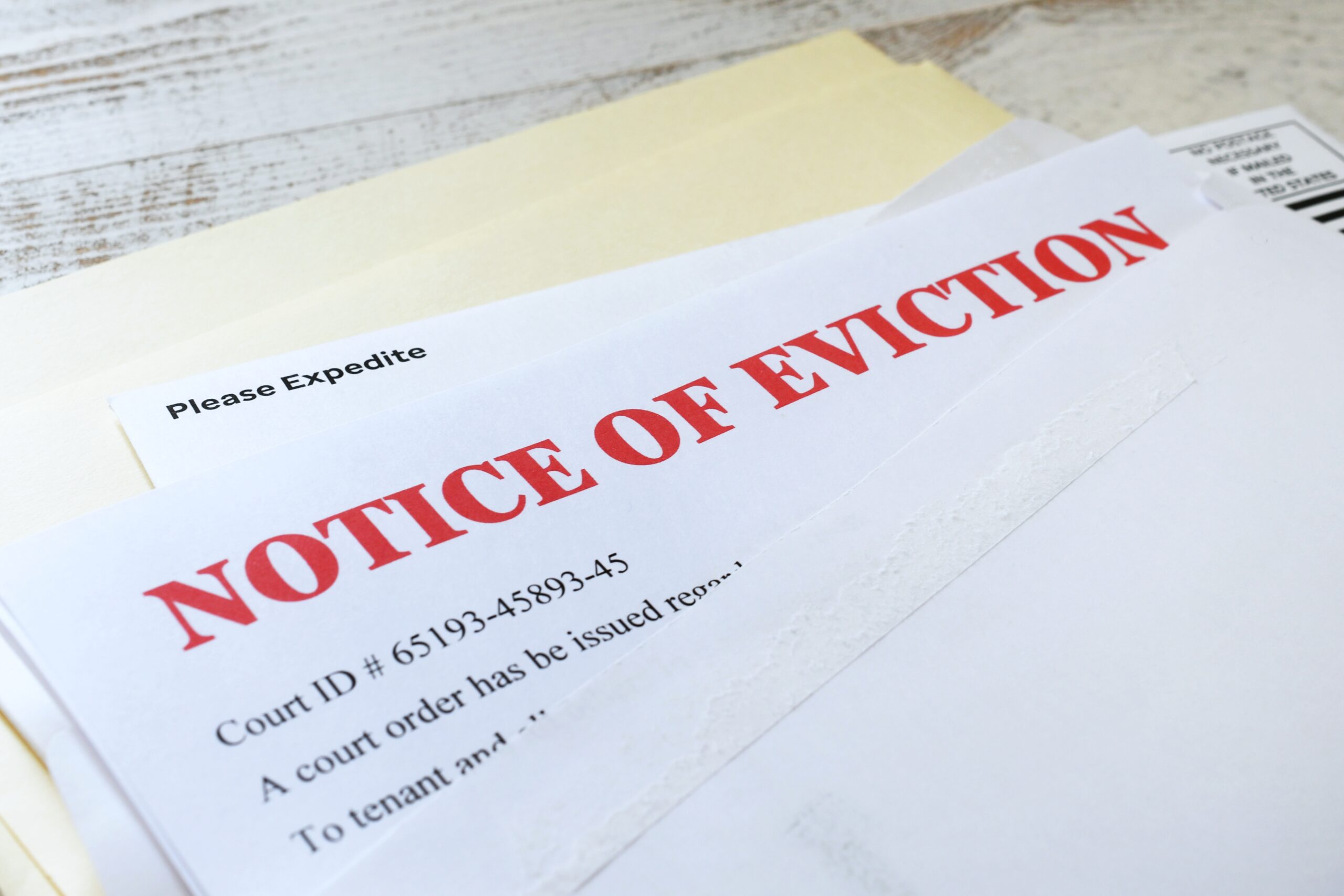The Importance of 24/7 Ontario Court Order Lawyers in Ensuring Optimal Outcomes Are Achieved in Court Orders Final & Interim
Free Help Hotline: Call 647-490-7660 for Court Orders Assistance Anywhere in Ontario
The Complexity of Court Order Hearings: Implications of Denied Or Punitive Ontario Court Orders
How Ontario Court Order Hearing Lawyers Can Assist You in Navigating the Legal Process and Boost Your Confidence for Positive Court Orders In Your Favor Being Granted By Judge
A Comprehensive Guide to the Court Order Hearings Process in Ontario Courts: In-Depth Information Graphic and Blog
Free Legal Consultation by Court Order Hearing Lawyers in Ontario | Affordable Fees & Flexible Payment Options
Do I Face Legal Consequences for Violating a Court Order?
Ontario Courts ensure the absolute enforcement of their orders and show no leniency towards order violators. Breaching a Court order is a matter of utmost seriousness, as Ontario Courts have the authority to impose severe penalties on those found guilty. Stay on the right side of the law!
As a law-abiding citizen, it is important to fully understand the legal implications of violating a court order in Ontario, Canada. Contrary to popular belief, violating a court order is considered a serious offense and can result in steep legal consequences. Depending on the nature of the violation, you may be subjected to penalties such as fines, imprisonment, or even a criminal record. For this reason, it is crucial that you seek the assistance of a skilled and experienced bail hearing lawyer to help navigate the complex legal system and protect your rights. With the right representation, you can have peace of mind knowing that your case is being handled with the utmost care and attention. Contact a bail hearing lawyer today to learn more about your legal options and how they can help protect your interests.
Understanding Ontario Court Orders: Unveiling the Power Behind Legal Decrees
Attention: A court order is a profound ruling delivered by a judge or justice of the peace. It holds the power to mandate or prohibit certain actions for a specific duration. Failing to comply with the court order may expose you to severe legal repercussions, including potential criminal charges. Stay within the bounds of the law!
In Ontario, a court order is a powerful legal document that must be taken seriously. Understanding the intricacies and implications of a court order can be daunting, but it is crucial to protect your rights and interests. Whether you are involved in a criminal case, a family law matter, or a civil dispute, knowing the full extent of the court’s authority is essential. At a bail hearing, for example, having an experienced lawyer by your side can mean the difference between freedom and incarceration. With their knowledge of the law and their skills in negotiation and argumentation, bail hearing lawyers can help you navigate the complexities of the legal system and ensure that your rights are respected. Don’t underestimate the power of court orders – get the legal guidance you need to protect yourself.
There are different types of Court orders:

Unraveling Interim Orders in Ontario: All You Need to Know
What distinguishes an order from an interim order? Final orders mark the conclusion of your case, whereas interim orders are temporary measures taken by the Court during the decision-making process. They are expedited solutions to urgent matters, ensuring progress while the court proceedings unfold.
Such Court orders are typically established throughout the case, primarily focusing on matters such as compelling the Crown Attorney to grant you access to specific evidence. Moreover, they have the potential to encompass injunctions that forbid the Government from expelling an individual from the country while the trial is ongoing for example.
Navigating Ontario’s legal system can be a challenging experience, especially when it comes to interim orders. These temporary rulings can have a major impact on a case and require the expertise of a skilled lawyer to properly unravel. If you find yourself facing an interim order, it’s important to seek out legal counsel who can guide you through the process and ensure your rights are protected. With years of experience and a deep understanding of Ontario’s legal system, our team of interim order lawyers is here to help. We’ll work with you to fully understand your situation, provide clear communication throughout the process, and develop a strategy that puts you in the best possible position for success. Contact us today to learn more.
Decoding Final Orders: Unlocking the Secrets of Ontario Courts
Final orders are those where the Court has settled the dispute and granted one side a solution. These remedies are usually:
Injunctions: These are Court orders that oblige an individual to either do something or stop doing something. In other words, they require specific actions or the cessation of certain actions.
Damages: Alongside injunctions, Courts may also order damage retribution as a remedy. This means that the party who caused harm or losses to the other side must compensate them financially.
Quashing Order: In some cases, the Court may acknowledge that a particular policy, law, regulation, or license is invalid or defective. In such instances, a quashing order is issued, effectively nullifying the legal standing of the aforementioned.
Law Reform: Another type of remedy that can be granted is through declaratory judgments and profound solutions. These remedies aim to reform or clarify certain aspects of the law in question.
Please note that all Court orders are mandatory, and they should be obeyed by all involved parties. Failure to comply with a Court order can result in various consequences, including but not limited to fines, imprisonment, or other legal actions undertaken to ensure the fulfillment of the order. However, it’s essential to understand that each Court order has its own guidelines for enforcement, which may vary depending on the specific circumstances and the nature of the order.
Since navigating the Canadian legal system can be complex and challenging, we highly recommend seeking legal assistance from Ontario Breach of Court Order Lawyers to ensure proper understanding and representation in such matters.
If you or a loved one is struggling to decipher the complexities and nuances of final orders in Ontario? Look no further than our team of legal experts, who are here to unlock the secrets of Ontario courts for you. Our comprehensive understanding of the legal system in Ontario allows us to provide unparalleled guidance and support to those seeking to navigate through the intricacies of final orders. Whether you’re a professional in the field or someone simply seeking to educate themselves on the topic, our team is here to provide tailored, personalized assistance with your legal needs. Trust us to guide you through the maze of Ontario courts and help you decode final orders with ease.
Call 647-490-7660 if you need legal representation in court. Our team of criminal defence attorneys can support you if you have been accused of a crime. We provide legal representation throughout all Ontario courthouses.
At Richmond Hill Affordable Criminal Lawyer Plug, you can find a team of attorneys that will be with you from the moment you realize you’re under police investigation. During bail, our team of Ontario Bail Lawyers will guide you and fight for your rights.
Common Breach Of Court Orders
When an individual is arrested, a Court can grant bail pending the resolution of a criminal matter. Usually, releasing a person comes with quite a few court orders or requirements. The most common ones are:
- A Probation Order where the court order the suspect to refrain from using drugs, alcohol, and/or communicate with certain people
- A Promise To Appear the suspect must agree to show up in court at the chosen time and date.
- A Peace Bond is when a suspect agrees to behave well and avoid being accused of another crime during its duration.
It’s imperative to follow any Court order. If you disobey the requirements of an order, you’re beaching the conditions, resulting in apprehension, fines, etc.
It’s wise to consult with an Ontario Probation Violations Lawyer if you have any doubt about how to comply with Court orders or breach a condition.

For instance, if you can’t attend Court on the established date, it’s imperative to contact an Ontario Failing to Attend Court Lawyer at 647-490-7660, so your attorney can represent you and explain to the court your absence.
If an individual misses Court, the Judge will most likely issue a warrant for their apprehension. If the person doesn’t show up for photos and fingerprints, the police will deliver that warrant.
It’s possible to drop that warrant by the Judge if your Ontario Failure to Appear (in Court) Lawyer appears in court and explains your absence.
However, this needs to be done immediately because, after 48 hours, it’s impossible to have the warrant annulled by the Justice of the Peace. In this case, your attorney will make preparatory measures to help surrender yourself to the Police to comply with the warrant.
Please note that you’ll be charged with another criminal offence if you fail to appear in Court.
Fortunately, a skillful Ontario Failure To Comply Bail Lawyer to demonstrate to the Police that you could not remember the date of your appearance and that the accusation of failing to appear in Court shouldn’t be placed.
If you neglect appearing in Court, you’ll need to go to the Police station for processing. Once this is done, you’ll go to an Ontario Courthouse for a Bail Hearing. If your criminal defence attorney can avoid a charge of failing to appear, the Court will keep the same bail terms as before.
Assuming that you’re accused of failure to appear in Court, your Ontario Bail Hearing Lawyer will provide you legal assistance for this new accusation and will fight on your behalf to avoid losing bail for this new criminal offence.
In case that you’re convicted of failing to appear, it’s plausible not to receive a guilty sentence. However, in most cases, Judges will dictate jail convictions up to a maximum of 180 days for the crime.
No matter what the punishment is, if you’re sentenced for failing to appear in Court, your chances of being released at a Bail Hearing diminish.
The same is true if you breach bail conditions.
In Canada, an individual is innocent until proven guilty. That’s why most people that are arrested can obtain bail until the Trial occurs.
Typically a suspect can be released on the promise to show up on Trial. In some cases, the Judge forced bail restrictions to ensure the public’s safety, secure the offender’s appearance in Court or keep the community’s trust in the Canadian criminal justice system.
According to s.145(3) of the Canadian Criminal Code, you commit a crime if you breach bail conditions. It’s the Crown attorney’s job to prove beyond reasonable doubt that the offender had the criminal intent to violate the bail conditions.
Having an Ontario Breach of Bail Lawyer on your corner is the best way to avoid legal consequences.
At Richmond Hill Affordable Criminal Lawyer Plug, we know how to protect your rights and protect you in Court, including legal matters involving bail conditions.
Our Ontario Bail Violations Lawyers team can discuss the options available to guide you through this stressful and frightening time.
Call us at 647-490-7660 or contact us online and request your free consultation. We promise to be by your side every step of the process. Remember, we are experienced and affordable criminal defence lawyers in Ontario.
Fail To Comply with Recognizance in Ontario: Unraveling the Consequences of Breaking the Rules
According to the Canadian Criminal Code, specifically in section 145(3), it is stated that:
“Every person who is at large on an undertaking or recognizance given to or entered into before a justice or judge, and is bound to comply with a condition of that undertaking or recognizance, and every person who is bound to comply with a direction under subsection 515(12) or 522(2.1), or an order under subsection 516(2), and who fails, without lawful excuse, the proof of which lies on them, to comply with the condition, direction, or order is guilty.”
This provision implies that individuals can face an accusation of “Fail to Comply with Recognizance or Undertaking” if they violate a Supervisory Order issued while awaiting a criminal allegation. It is important to note that this criminal offense often results in imprisonment if the accused is found guilty.
To navigate through such a legal matter successfully, it is highly recommended to seek the assistance of an experienced Ontario Fail to Comply with Recognizance Lawyer. They will work closely with you to explore all possible avenues for avoiding a conviction and safeguarding your rights.
It is vital to understand that the burden of proof rests with the Crown attorney, who must present sufficient evidence to establish that the accused has breached one or more of the conditions and that there was an intention to violate these conditions.
Thankfully, with the guidance of a competent Ontario Fail to Comply with Bail Recognizance Lawyer, there are numerous strategies and legal approaches that can be utilized to support your case effectively.
Breaking the rules of your Recognizance in Ontario is not a matter to be taken lightly. The consequences of non-compliance can be severe and far-reaching, with the potential for permanent damage to your record and reputation. For those who have been ordered to comply with a Recognizance, it is important to heed the requirements set forth by the courts, including attending counseling or treatment programs, adhering to curfews, and staying clear of certain people or places. Failure to comply with these rules can result in final orders in Ontario, which can include hefty fines, restraining orders, and even imprisonment. Don’t let non-compliance derail your future. Seek legal counsel to ensure you’re on the right path and avoid the consequences of breaking the rules.
That’s why the first step is to call 647-490-7660 and request your free consultation. This way, you can receive proper legal advice and viable defence strategies that apply in your case.
 The Breach of Weapons Prohibition in Ontario: Understanding the Legal Consequences
The Breach of Weapons Prohibition in Ontario: Understanding the Legal Consequences
An individual can be accused of Breach of Weapons Prohibition when they have used or possessed limited or prohibited firearms, devices, ammunition, explosive substances, or crossbows without legal authorization. It is considered a serious crime that may result in penalties imposed by the court, both mandatory and discretionary, following a conviction.
A weapons prohibition order is mandatory in certain cases where a person has been convicted of particularly violent crimes, including sexual assault, criminal harassment, trafficking or producing illegal drugs, or an indictable offence involving violence or the threat of violence. This order restricts the individual from possessing or accessing any type of weapons and is implemented to ensure the safety of the community and potential victims.
The decision to impose a weapons prohibition order lies with the Judge, who exercises their discretion after considering various factors, including the best interests of the community and the circumstances of the convicted individual.
Are you aware of the legal consequences of a breach in weapons prohibition in Ontario? It’s not something to take lightly. If you’re facing charges related to this issue, you need a legal professional who understands the ins and outs of local law. That’s where Richmond Hill Affordable Criminal Lawyer Plug comes in. Our team of experienced lawyers is committed to providing top-notch legal representation and ensuring your rights are protected. We understand that this can be a daunting and stressful time, but our goal is to make the process as smooth as possible for you. Don’t wait – contact us today to schedule your consultation and let us help you navigate this complex legal matter.
“Avoid Harsh Punishments with Ontario Breach of Weapons Prohibition Lawyers – Get the Best Legal Representation Today!”

Discover the Legal Consequences: Perjury and Obstruction of Justice in Ontario
As citizens, we have a civic responsibility to uphold and respect the integrity of the legal system. However, in some cases, individuals may commit perjury or obstruction of justice, which can result in severe legal consequences. Whether knowingly or unknowingly, these actions are taken seriously in the Canadian justice system and can lead to imprisonment, hefty fines, and tarnished reputations. That’s why it’s essential to understand the severity of these offenses and seek legal representation from a trusted Richmond Hill Affordable Criminal Lawyer Plug who can protect your rights and defend you against allegations of perjury or obstruction of justice. At our affordable Ontario law office, we have an experienced legal team who will provide you with insightful advice, comprehensive legal representation, and defend your rights throughout the entire legal process. Don’t take chances with your future – contact us today for a consultation.
According to section 139(2) of Canada’s Criminal Code, an individual can be charged with obstruction of justice if they try, in any way, to restrict, distort, or defeat a judicial proceeding. This criminal offense encompasses various actions, including attempting to bribe a judge, attorney, police officer, court official, or witness.
For example, actions like threatening someone to refrain from testifying on trial or providing false testimony are considered forms of obstruction of justice. Additionally, providing dishonest facts to a police officer or lying about personal information or the identity of individuals involved in a legal case can result in charges of obstruction of justice.
It is crucial to understand that remaining silent is an option. However, voluntarily offering information about an ongoing investigation with the intention of misleading it is a crime.
If you find yourself charged with obstruction of justice, it is imperative to seek immediate legal assistance from Ontario Obstruction of Justice Lawyers. Keep in mind that a conviction for obstruction of justice can lead to imprisonment and a criminal record.
To secure a conviction for obstructing justice, the Crown attorney must prove beyond a reasonable doubt that the accused deliberately and intentionally attempted to interfere, misrepresent, or defeat the course of justice.
If found guilty of obstruction of justice, the maximum penalty for this offense when proceeded by indictment is ten years’ imprisonment. It is also possible for this criminal offense to be prosecuted by summary conviction, which typically carries a lesser penalty.
Moreover, it is crucial to note that an individual must have explicit intent to obstruct justice to be held liable under section 139(2) of the Canadian Criminal Code. Mere honest errors of judgment are not sufficient to secure a conviction.
For example, if someone is accused of encouraging another individual to provide false evidence, the Crown attorney must prove that the accused had knowledge of the information’s inaccuracy.
Remember, the legal system’s primary objective is to uncover the truth. Perjury, which involves lying under oath, is another way to obstruct justice. Individuals found guilty of perjury can face severe consequences, including prosecution, imprisonment, impeachment, and a criminal record.
Ontario Perjury Lawyers explain that to be charged with perjury, a witness must knowingly declare something false while under oath in a court of law. It is important to remember that a perjury charge only applies when there is evidence of intentional false statements.
If you find yourself in such legal situations, it is crucial to seek professional legal guidance to protect your rights and navigate the complex legal processes successfully.

